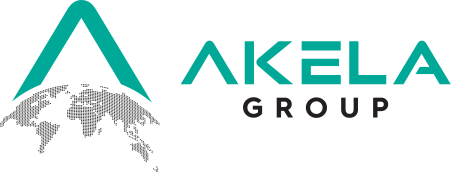At Akela, we are often called upon to act as supply chain strategic advisors to C-Suite executives across both Government and private sectors. Key factors that are often overlooked as part of global supply chain networks are geo-political risks, macroeconomics, and global financial markets. Yet it is these issues that can have some of the most dramatic impacts to your business operations.
Akela would like to share some insights on the areas of concern that our teams are frequently asked to provide advice on during our engagements with global business leaders and Company Boards.
In an era of unprecedented global challenges and rapidly changing market landscapes, it is crucial for C-Suite executives to stay informed, adapt swiftly, and make sound strategic decisions. As a 2022 Merrill Lynch investor note wrote: “In a matter of months, we have gone from a pandemic to Putin; infections to inflation; Big Data to Big Oil; zoom to zinc; masks to mascara; and E-commerce to electric vehicles; jabs to javelins; swabs to sanctions; Webex to weddings; boosters to bombs; Non-fungible tokens (NFTs) to liquefied natural gas (LNG); Centre for Disease Control (CDC) to North Atlantic Treaty Organisation (NATO); work-from-home to work-from-office; the cloud to cobalt; and lite assets to hard assets”.
In 2023, today’s business leaders are faced with an increasing global uncertainty with the continued bifurcation of global supply chains, the divergence of (and emergence of new) digital and financial infrastructures (e.g. non-FIAT denominated “currencies”, CBDCs, alternatives to SWIFT and challenges to the global reservice USD currency status), whilst dealing with weakened and exposed economies that can turn quickly and cause significant disruptions to your business operations. Markets in these economies are also impacted by the growing number of geo-political and macroeconomic risk factors such as, renewed tensions between East and West, the rise of BRICS+ economies, high inflation that has significant impacts such as increasing food and energy prices (partly fuelled by the fallacy of MMT and record printing of US dollars in the last 2 years), energy transformation (particularly nuclear and renewables), and the increasing ESG considerations for businesses.
So….with a world that is currently undergoing such profound change, how do C-Suite executives and global business leaders face the future to ensure that their global supply chains become resilient enough to withstand such disruption in an interconnected world?
The disruptions witnessed in recent years from trade conflicts, natural disasters, wars, and pandemics, have highlighted the vulnerability of global supply chains. C-Suite leaders must prioritise building resilient supply chains capable of withstanding shocks and adapting to changing circumstances. Through our regional and global operations and experience, Akela’s view is that the following 7 factors are critical to businesses developing and maintaining a resilient global supply chain capability to support your business operations:
- Diversification: Reducing reliance on a single geographic region and exploring alternative sourcing options can mitigate risks associated with political instability, trade disputes, or unforeseen events.
- Agility and Flexibility (End-to-End Supply Chain Visibility): Embracing digital transformation and new technologies such as blockchain, IoT, artificial intelligence, automation, and advanced analytics, can enhance visibility, traceability, and real-time decision-making within supply chains. This enables faster responses to disruptions and better coordination among stakeholders.
- Collaboration and Partnerships: Strengthening relationships with suppliers, customers, and even competitors can foster a spirit of collaboration, enabling shared risk mitigation and innovative problem-solving.
- Scenario Planning: By conducting rigorous scenario planning exercises, businesses can evaluate potential outcomes and devise proactive strategies accordingly. This approach allows for more informed decision-making amidst geo-political uncertainties.
- Government Relations: Building strong relationships with governments and policy makers is crucial in managing geo-political risks. Engaging in dialogues, participating in industry associations, and staying well-informed about regulatory changes are essential steps towards navigating this landscape.
- Continuous Geo-Political and Economic Monitoring: Employing advanced analytics and intelligence-gathering tools can provide real-time insights into evolving geo-political dynamics, global economic indicators (such as GDP growth rates, inflation, and interest rates), and regulatory changes. Understanding these insights and the implications of economic shifts can help executives make informed business decisions, anticipate changes in consumer demand, investment patterns, and currency fluctuations. It also further enables businesses to identify and respond swiftly to emerging risks and opportunities.
- Risk Management: Adopting robust risk management strategies, including hedging against currency and commodity price volatility, diversifying investment portfolios, and stress-testing financial models, can help mitigate the impact of potential downturns and market disruptions.
At Akela, we help C-Suite executives formulate supply chain strategies, operations and business continuity plans (BCPs) to meet today’s and emerging global challenges. We believe business leaders must embrace a proactive and adaptive mindset in the face of evolving global supply chains, geo-political risks, macroeconomic shifts, and financial market dynamics. By fostering resilience, staying informed, and leveraging emerging technologies, business leaders can seize opportunities, mitigate risks, and position their organisations for long-term success.
Get in touch with Akela today.


